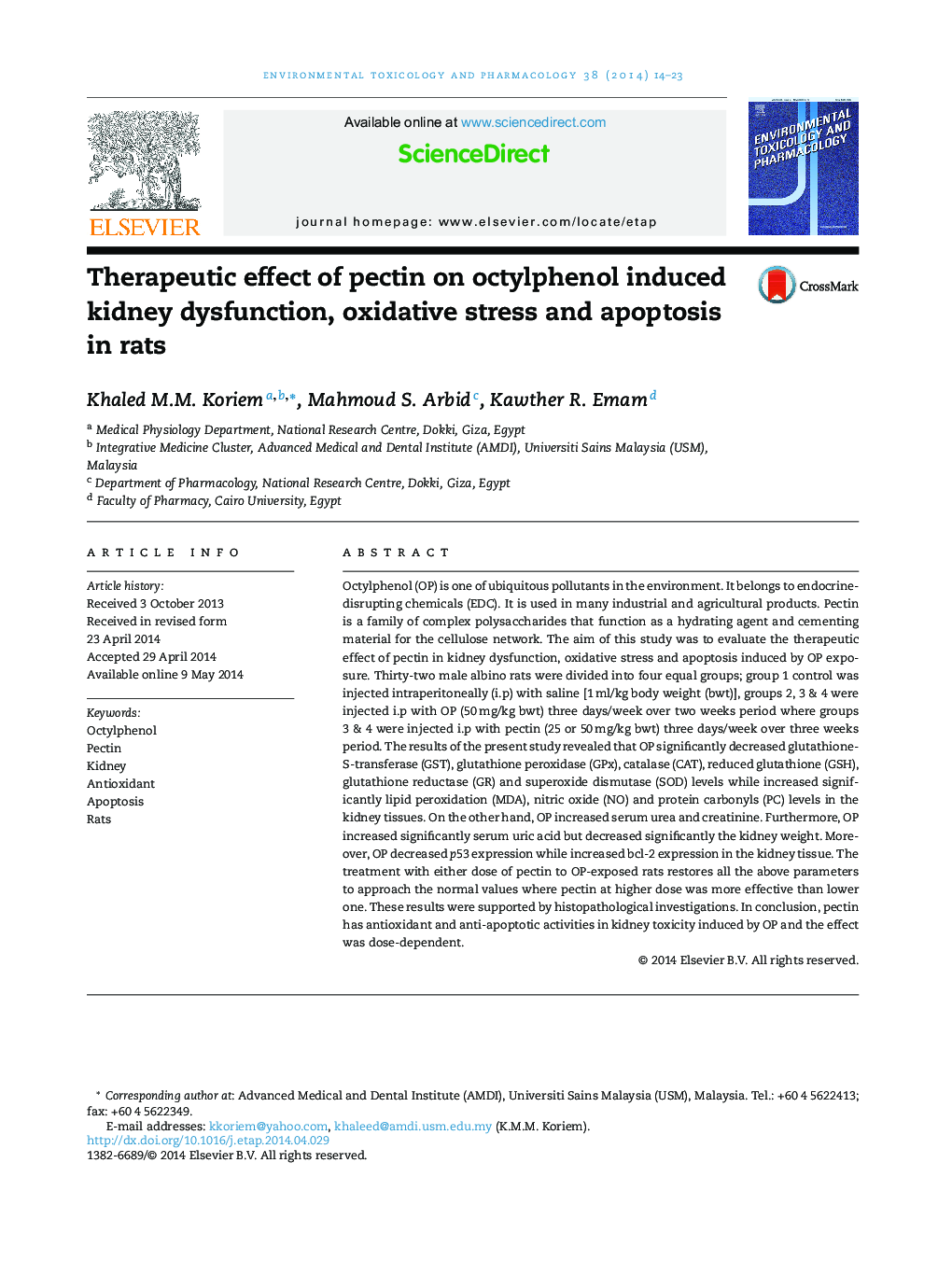| Article ID | Journal | Published Year | Pages | File Type |
|---|---|---|---|---|
| 2583723 | Environmental Toxicology and Pharmacology | 2014 | 10 Pages |
•Octylphenol toxicity.•Decreased kidney antioxidants and weight while increased urea and creatinine.•Octylphenol decreased kidney p53 expression while increased bcl-2 expression.•Pectin treated against octylphenol toxicity.
Octylphenol (OP) is one of ubiquitous pollutants in the environment. It belongs to endocrine-disrupting chemicals (EDC). It is used in many industrial and agricultural products. Pectin is a family of complex polysaccharides that function as a hydrating agent and cementing material for the cellulose network. The aim of this study was to evaluate the therapeutic effect of pectin in kidney dysfunction, oxidative stress and apoptosis induced by OP exposure. Thirty-two male albino rats were divided into four equal groups; group 1 control was injected intraperitoneally (i.p) with saline [1 ml/kg body weight (bwt)], groups 2, 3 & 4 were injected i.p with OP (50 mg/kg bwt) three days/week over two weeks period where groups 3 & 4 were injected i.p with pectin (25 or 50 mg/kg bwt) three days/week over three weeks period. The results of the present study revealed that OP significantly decreased glutathione-S-transferase (GST), glutathione peroxidase (GPx), catalase (CAT), reduced glutathione (GSH), glutathione reductase (GR) and superoxide dismutase (SOD) levels while increased significantly lipid peroxidation (MDA), nitric oxide (NO) and protein carbonyls (PC) levels in the kidney tissues. On the other hand, OP increased serum urea and creatinine. Furthermore, OP increased significantly serum uric acid but decreased significantly the kidney weight. Moreover, OP decreased p53 expression while increased bcl-2 expression in the kidney tissue. The treatment with either dose of pectin to OP-exposed rats restores all the above parameters to approach the normal values where pectin at higher dose was more effective than lower one. These results were supported by histopathological investigations. In conclusion, pectin has antioxidant and anti-apoptotic activities in kidney toxicity induced by OP and the effect was dose-dependent.
